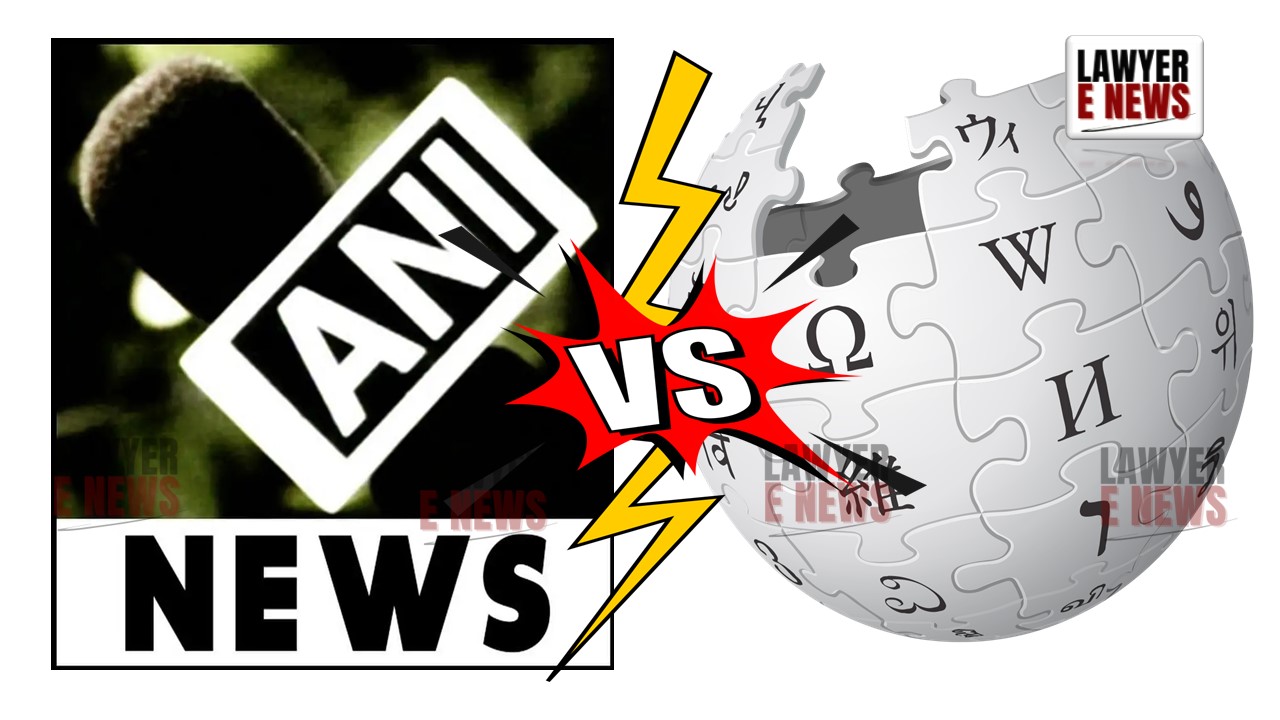-
by Admin
15 February 2026 5:35 AM



Today, On October 21, 2024, the Delhi High Court, while hearing an appeal in the defamation suit filed by Asian News International (ANI) against Wikipedia, remarked on the severity of accusations against a news agency being labeled as a "puppet of an intelligence agency" or a "stooge of the government." The court was hearing an appeal filed by Wikimedia Foundation, the host of Wikipedia, against a single judge's order directing it to disclose the subscriber details of three individuals who had edited ANI’s Wikipedia page. The edits were alleged to be defamatory.
A division bench comprising Chief Justice Manmohan and Justice Tushar Rao Gedela remarked that ANI’s plaint contained “very serious allegations” against it, which could damage its credibility. The court highlighted that the single judge had acted cautiously in issuing the order and had provided Wikimedia Foundation sufficient time to file a response, which it failed to do.
"The single judge was very cautious. He gives you a notice returnable virtually after four weeks and says, file your reply. You don’t file a reply. Many people think it’s an ex parte order. This is not an ex parte order. The single judge is very, very conscious in issuing notice on day one, asking for a reply. When the reply does not come, then he says this must be done," stated Chief Justice Manmohan.
The case arose from a defamation suit filed by ANI against Wikimedia Foundation, the entity that operates Wikipedia. ANI alleged that its Wikipedia page contained defamatory content accusing the news agency of being a "propaganda tool" for the central government and of distributing material from fake news websites. ANI claimed that the content was false and malicious, intended to tarnish its reputation.
On August 20, 2024, a single judge of the Delhi High Court directed Wikipedia to disclose the subscriber details of the individuals who had edited ANI's page within two weeks. When Wikimedia failed to comply with this order, ANI filed a contempt plea, which has since been closed as Wikipedia has taken down the contentious page.
Wikimedia, in response, filed an appeal, arguing against the order to disclose subscriber details and claimed it was only an intermediary, with no liability for user-generated content. ANI is also seeking ₹2 crores in damages from Wikipedia for reputational harm.
The primary legal issue before the court was whether Wikimedia, as an intermediary, could be compelled to disclose the identities of individuals who allegedly posted defamatory content. ANI argued that the accusations, including claims of being a "stooge of the government," are scandalous and defame the agency’s reputation. Wikimedia argued that it should not be forced to disclose user identities without a prima facie finding that the content was defamatory.
"Very Serious Allegations That Would Damage Anyone's Reputation"
During the hearing, Chief Justice Manmohan highlighted the gravity of the allegations made against ANI, stating that calling a news agency a "puppet of an intelligence agency" or a "stooge of the government" could have serious consequences.
"We have put it to you that we have gone through the plaint. The plaint is disclosing very serious allegations which would spurge anyone's fair name and reputation. You are accusing someone of being a puppet of a Central Intelligence Agency. I think nothing can be worse for a news agency than to be called a puppet of an intelligence agency or stooge of the government. If that is true, then his credibility goes," the Chief Justice remarked.
The court questioned Wikimedia's intermediary defense, pointing out that while Wikipedia may not directly create content, it cannot use anonymity as a shield when defamatory content is posted. The bench stressed that ANI could not be left without any recourse if its reputation was being tarnished.
"When these allegations are made, these are serious allegations. You will say that I am an intermediary. I have done nothing. Who will defend these allegations? You are not disclosing the name of the author. If you don’t disclose the name of the author, you take the defense of intermediary, then all of this will become a cloak to hide behind the veil of anonymity and to be sure that the case does not proceed," the bench noted.
The court further warned that Wikimedia’s refusal to disclose the identities of the editors would obstruct the defamation suit from moving forward, leaving ANI without a proper remedy.
The court has not yet delivered a final ruling on Wikimedia’s appeal. The next hearing is scheduled for October 28, 2024. The bench directed both parties to submit their responses and further clarified that ANI could file its application under Order 39 Rule 1&2 in accordance with the law.
The bench also addressed Wikipedia’s concerns about intermediary liability, emphasizing that while the platform plays a valuable role in disseminating information, it cannot completely escape accountability when reputational harm is at stake.
Senior Advocate Akhil Sibal, representing Wikimedia Foundation, argued that the single judge should have reached a prima facie finding that the content was defamatory before ordering the disclosure of subscriber identities. Sibal pointed out that the allegedly defamatory content had been on Wikipedia since 2020, but the defamation suit was only filed in 2024, arguing that the delay should have been a consideration for the court.
The Delhi High Court’s observations signal the seriousness of the allegations against ANI and the potential implications for Wikimedia as an intermediary. As the case progresses, the court will likely need to strike a balance between protecting free speech on online platforms and ensuring that individuals and organizations have a remedy when defamatory content is posted anonymously.
Date of Decision (Next Hearing): October 28, 2024
Wikimedia Foundation v. ANI & Ors.
